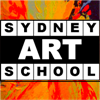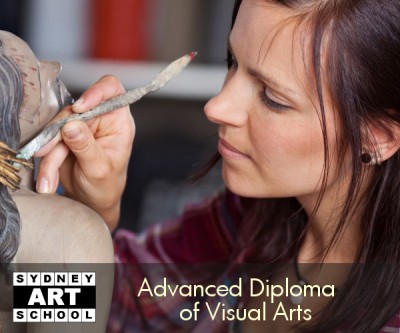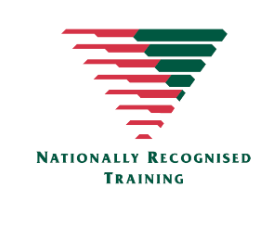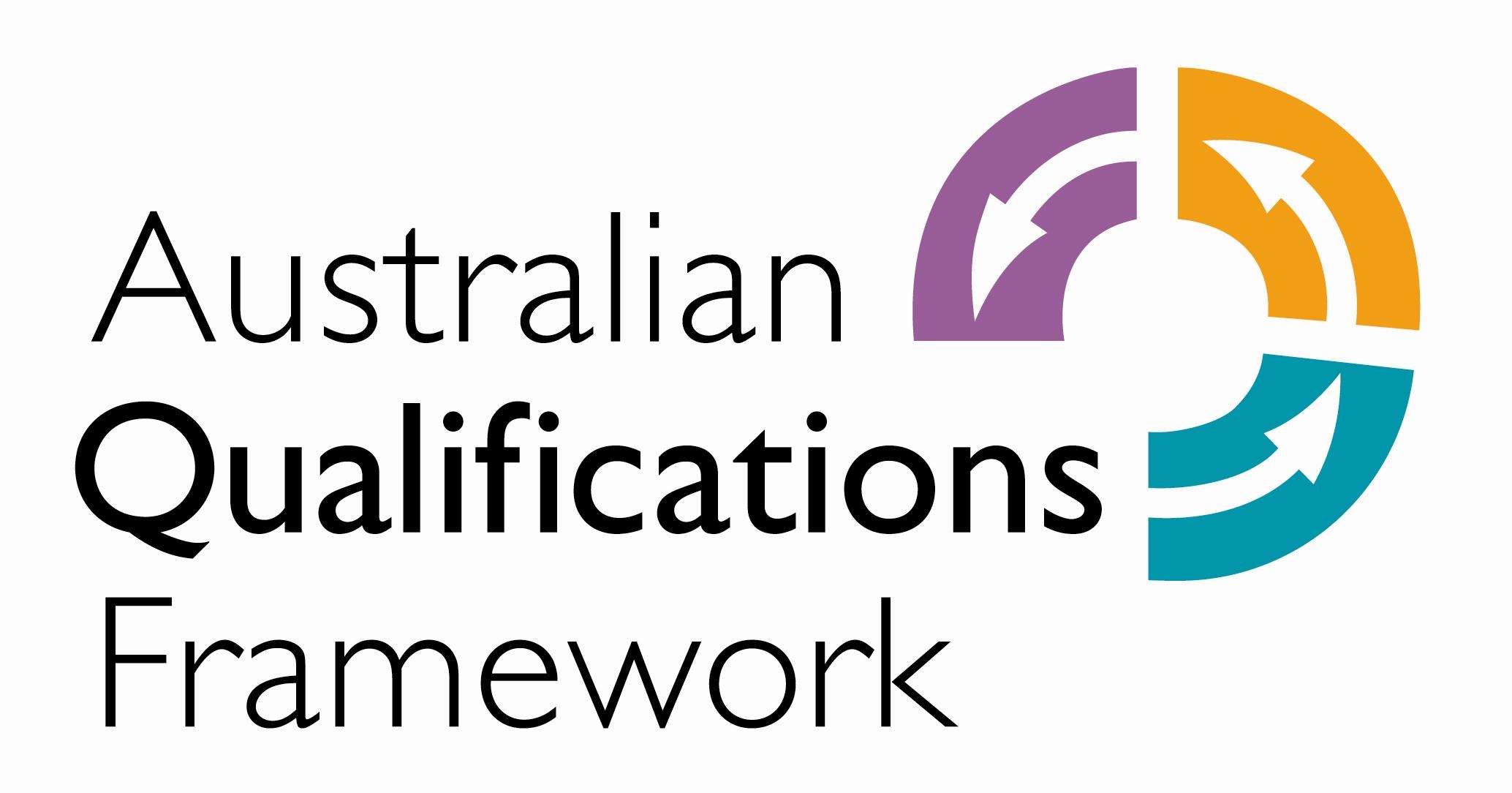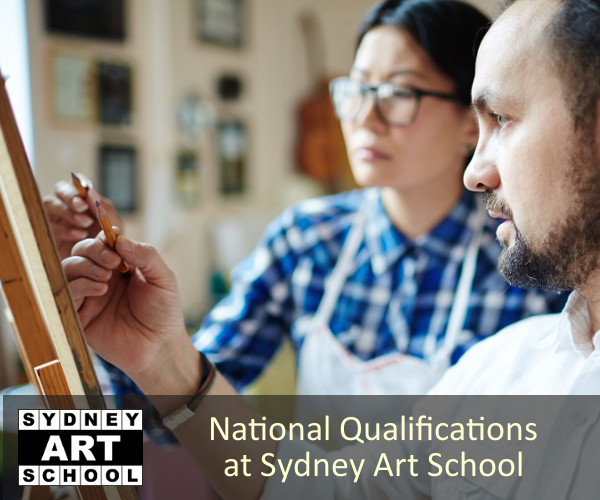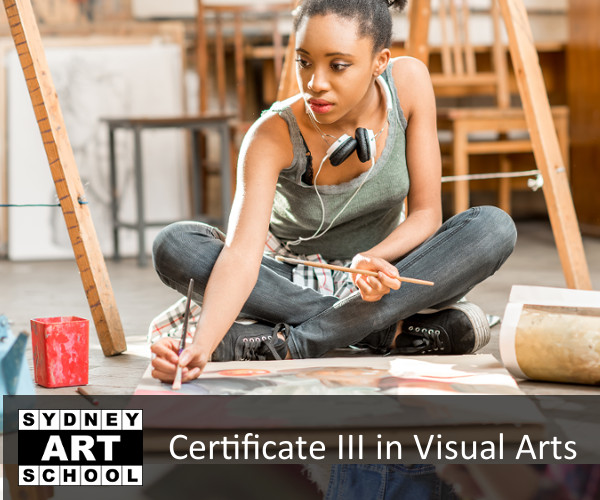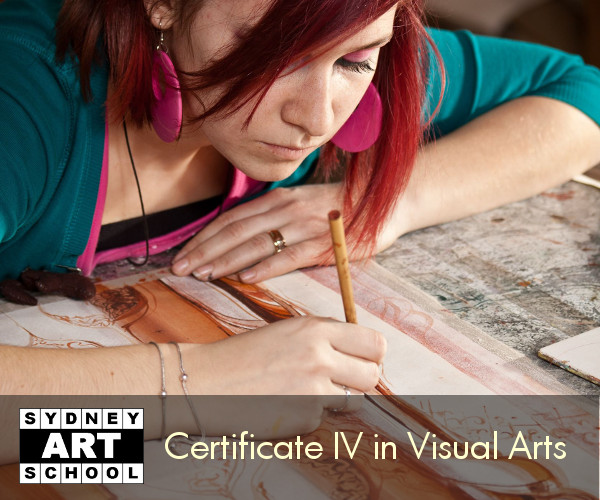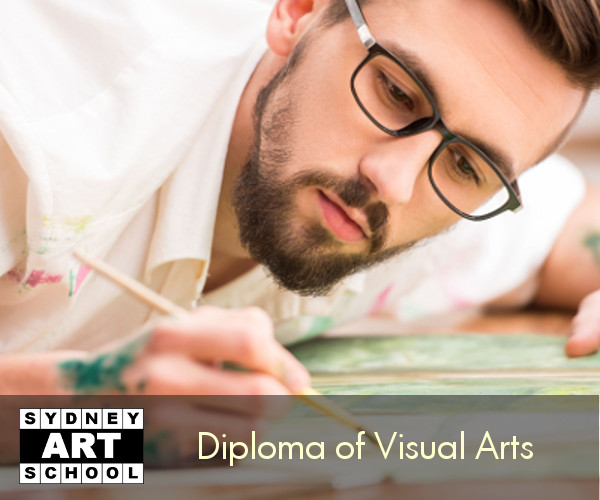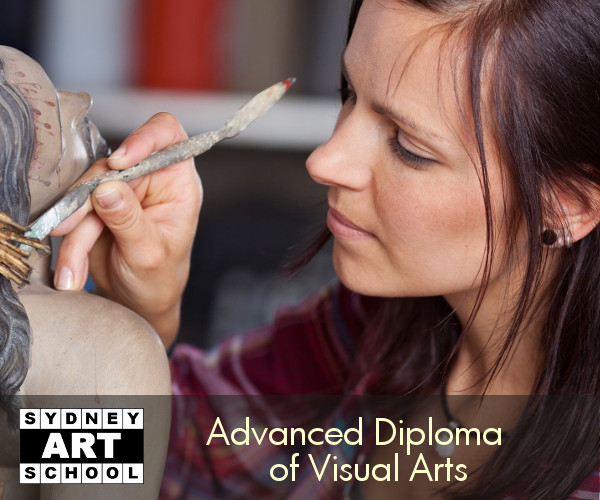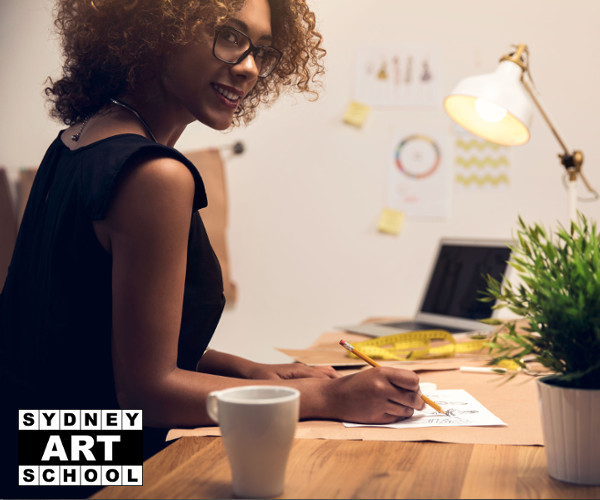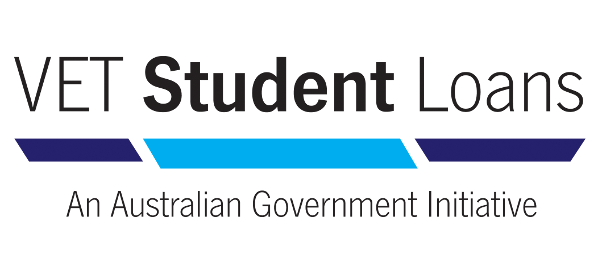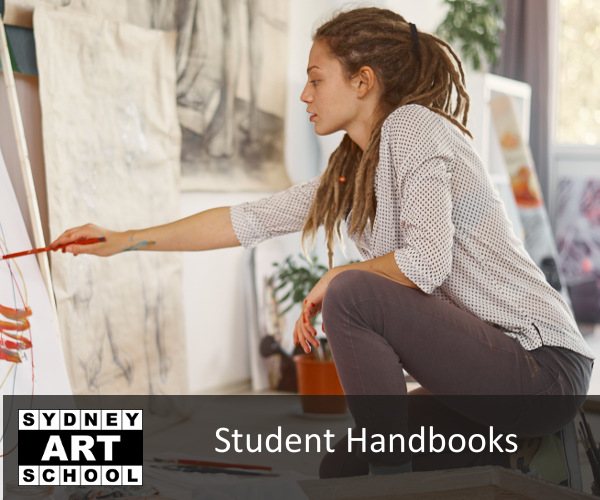Advanced Diploma of Visual Arts
The Advanced Diploma of Visual Arts at Sydney Art School is available to Australian students as well as international students who wish to study in Australia.
It is recommended for visual arts students who are looking to to refine existing technical artistic skills and develop artworks that also provide communication of a concept or narrative.
The studio based "hands on" based learning model follows the classical atelier tradition of teaching art. Specialist art studio sessions for skills in drawing, painting, printmaking and jewellery making are available.
The Sydney Art School Advanced Diploma of Visual Arts course is accredited under the Australian Qualifications Framework provides for a pathway into Australian universities. It is also listed on the Commonwalth Register of Institutions and Courses for Overseas Students (CRICOS).
|
NATIONAL CODE CUA60720 |
CRICOS CODE 107095K |
|
QUALIFICATION Diploma |
INDUSTRY AREA Arts & Design |
|
STUDY MODES Full Time, Part Time |
COURSE FEES & DURATION |
|
INTERNATIONAL ENROLMENT This course is available to International Students |
PATHWAYS Western Sydney University (WSU), Austalian Catholic University (ACU), Other* |
|
Studio Locations Hornsby, Baulkham Hills |
Description
Qualification Description
This qualification reflects the role of individuals who have para-professional level technical, creative and conceptual skills to originate, realise and exhibit a substantial body of resolved work that expresses their own creative vision. Visual artists work within and across many mediums, and their practice may incorporate ceramics, digital art, glasswork, drawing and illustration, jewellery making, painting, photomedia, printmaking, public art, sculpture, textiles or wood design.
Practice at this level is underpinned by application of art theory and history, the ability to engage in critical discourse and to debate one’s own work and the work of others.
Visual artists may work in their own practice, or a wide range of contexts across the arts, government or commercial organisations and also bring visual arts perspective to areas such as business, community services and science.
Entry Requirements
To enter this qualification, individuals must have the conceptual, technical and organisational skills to create and present work in their chosen creative form.
Those skills and knowledge may have been acquired through experience in a creative field or through formal study.
Entry into the Advanced Diploma of Visual Arts at Sydney Art School is selective. Admission to the Advanced Diploma course will be based on consideration various of factors that may include (but not limited to);
- Completion of a Diploma of Visual Arts at Sydney Art School OR evidence that you are able to meet the AQF standards required for the award of the Diploma of Visual Arts.
- Demonstration of a high level of technical expertise in your chosen creative form (drawing, painting, printmaking or jewellery).
- Your ability to apply art theory and history to critically analyse and synthesise information from a range of sources.
- Previous discourse around complex ideas related to your art work or a related topic.
- Experience in creating and presenting of a body of work in an exhibition context.
Advanced Diploma students take on a senior role within the student body. Your ability and willingness to contribute to the advancement and cohesion of fellow students at a cultural, social and academic dimensions will also be taken into account in your application.
If you do not already hold a Diploma of Visual Arts you may need an Application Assessment Interview to determine your suitability to directly enter the Advanced Diploma of Visual Arts at Sydney Art School.
Pathways Information
Pathways into the qualification
People entering this qualification will have well-developed artistic skills and knowledge which may have been achieved through experience in a creative field or through formal study. It is recommended that people possess CUA51120 Diploma of Visual Arts or a diploma qualification in a related field.
Pathways from the qualification
This qualification prepares people for independent practice as a professional visual artist. Its conceptual and theoretical content also supports learning in higher education across a broad range of arts-related disciplines.
Qualification Rules and Units
Advanced Diploma of Visual Arts Qualification Curriculum
The Sydney Art School curriculum for the Advanced Diploma of Visual Arts (CUA60720) has been designed and approved to meet the requirements and standards set by the Australian Government for the award of this qualification. Full details of the rules and unit options can be found at CUA60720 Diploma-of-Visual-Arts
Units you will need to complete
To meet the requirements of the qualification the unit "packaging rules" are;
Total number of units = 12
made up of
6 core units plus
6 elective units of which
4 must be from Group A
2 may be from Groups A and/or B or from any currently endorsed training package qualification or accredited course.
Elective units must be relevant to the work environment and the qualification, maintain the overall integrity of the AQF alignment, not duplicate the outcome of another unit chosen for the qualification, and contribute to a valid industry-supported vocational outcome.
Where relevant, the choice of elective units set out in the packaging rules above can serve to provide the qualification with one of the following specialisations. The rules to achieve a specialisation are detailed at qualification end.
Art Management
Jewellery
Public Art
Unit Options - Advanced Diploma of Visual Arts
Sydney Art School offers a set of standard units that provide you foundation set of skills across the disciplines of drawing, painting, printmaking and jewellery making. You can choose to vary the standard units to enable you to focus on a particular area of interest.
Below are the standard units that are currently offered by SAS.
Core Units |
BSBCRT611 Apply critical thinking for complex problem solving CUAACD611 Extend professional expertise with drawing and other visual representation tools CUAPPR611 Originate a body of independent creative work CUAPPR613 Engage in the business of creative practice CUAPPR614 Publicly present a body of own creative work CUARES612 Extend cultural research expertise
|
Group A Units |
|
Below is a subset of Electives from Group A that are readily covered as part of current SAS studio sessions. CUAACD532 Create observational drawings CUAACD533 Select and refine a specialised drawing technique CUAACD534 Research and apply light and colour CUAACD535 Work with the human form in creative practice CUADRA501 Refine drawing techniques CUADRA502 Investigate drawing materials and processes CUAPAI511 Refine painting techniques
Other Group A elective units listed in the qualification may be chosen by the student with the agreement of the School. A complete list can be found at https://training.gov.au/TrainingComponentFiles/CUA/CUA60720_R1.pdf CUAACD513 Make mixed media artworks CUAACD506 Refine 2-D design ideas and processes CUAACD507 Refine 3-D design ideas and processes CUAACD602 Extend professional expertise across new art forms and media CUADIG518 Refine digital art techniques CUADIG519 Investigate technologies for the creation of digital art MEM19038A Apply traditional techniques to jewellery and 3D object production MEM19039A Plan, conduct and supervise a jewellery and object exhibition MEM19043A Oversee jewellery or object design production
|
Group B Units |
|
Below is a subset of Electives from Group B that are readily covered as part of current SAS studio sessions. TAEDEL401A Plan, organise and deliver group-based learning Other elective units listed in the qualification may be chosen by the student with the agreement of the School. A complete list can be found at https://training.gov.au/TrainingComponentFiles/CUA/CUA60720_R1.pdf
|
Recognition of Prior Learning
Recognition of Prior Learning (RPL) against other units not listed above may be assessed by Sydney Art School on request.
A complete list of units specified for this qualification can be found at http://training.gov.au/Training/Details/CUA60720.
Please contact us if you wish to discuss the options available.
Employability Skills Summary
The following table contains a summary of the employability skills as identified by the visual arts, craft and design industries for this qualification. The employability skills facets described here are broad industry requirements that may vary depending on qualification packaging options.
|
Employability skill |
Industry/enterprise requirements for this qualification |
|
Communication |
|
|
Teamwork |
|
|
Problem-solving |
|
|
Initiative and enterprise |
|
|
Planning and organising |
|
|
Self-management |
|
|
Learning |
|
|
Technology |
|
